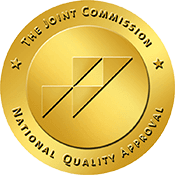Alcohol use disorder or alcohol abuse affects millions of people every year. It breaks up families, harms bodies, and leads to approximately 88,000 deaths a year. In fact, alcohol deaths are the third leading preventable cause of death. Thus, it’s vital individuals learn the dangers of alcohol abuse as well as the means to treat it. Often, people contemplating quitting drinking worry about withdrawal. It can keep them from getting the help they need. This is a concern if you try to go it alone. However, with the help of an alcohol detox program, it’s possible to get through the alcohol detox timeline safely.
What Is the Alcohol Detox Timeline?
The alcohol detox timeline refers to the withdrawal process and symptoms you will experience when you quit drinking. When you drink alcohol regularly and then quit abruptly, it can lead to serious complications. This is because over time alcohol has altered your brain chemistry. When an individual has developed a tolerance to alcohol, meaning they have to drink more and more often or stronger and stronger liquor, it is a sign they have a dependency or addiction. This disease can be treated but needs to be addressed sooner rather than later. One way to understand alcohol use disorder is by identifying the stages and symptoms of alcohol withdrawal.
How Does Alcohol Affect You?
Alcohol is a depressant and over time affects the central nervous system and brain. As a result, it slows down your system. However, the brain goes into a hyperactive mode to keep responsive. Therefore, when you suddenly quit, your brain and CNS are out of sync. This is jarring and results in many of the withdrawal symptoms that people have when they quit drinking. Some of these symptoms include:
- Shakes
- Anxiety
- Sweaty
- Heart palpitations
- Difficulty sleeping
- Nausea
Additionally, you can experience:
- Headache
- Possible seizures
- Potential hallucinations
- Racing heart
- High blood pressure
Everyone experiences withdrawal differently. Some people face mild symptoms while others deal with more severe issues.
How Long Does It Take to Detox From Alcohol?
Here is a look at an alcohol detox timeline:
- In 6–12 hours, shakiness, nervousness, headaches, vomiting, insomnia, and sweating
- In 24–72 hours, ill and disoriented, possible tremors, hallucinations, and seizures
- During days 3–7, you may experience some of the above symptoms on and off, and you are also at risk for delirium tremors
- One week after you stop drinking, the symptoms will begin to abate
Finding Help For Alcohol Detox
Join us at Tides Edge facility, a comprehensive alcohol detox center. This is the place to begin your journey to a healthier new life. Our compassionate clinicians understand what you’re going through and are ready to walk along beside you. They’ll make sure you are safe and comfortable during this time.
We also are proud to offer you the best in rehab with our JCAHO accredited detox center. You can rest easy knowing that you’ll have actual medical experts working around the clock while you’re in rehab. Some different treatment options we have, include:
Residential Care Program
A residential care program provides 24/7 medical and emotional support during the detoxification process. The program is designed to help individuals safely and comfortably manage the physical, psychological, and emotional withdrawal symptoms that accompany drug or alcohol addiction.
Inpatient Detox Treatment
Inpatient detox provides 24-hour medical care and support in a safe, supervised environment. During this time, individuals receive medical care for withdrawal symptoms, receive counseling and therapy sessions, gain education about addiction, participate in group activities, and learn coping skills that will help them in recovery.
Intensive Outpatient Treatment
Intensive outpatient treatment (IOP) allows individuals to maintain their daily responsibilities while attending therapy and other recovery services. This type of program works well for people who need more structure, accountability, and support than regular outpatient care can provide.
Outpatient Treatment Therapy
Outpatient treatment therapy involves attending regular therapy appointments while still living at home. This type of program works well for individuals who need more flexibility and may have other commitments such as school or work.
Partial Hospitalization Treatment
Partial hospitalization treatment (PHP) is a more intensive form of outpatient care that provides an intermediate level of support between inpatient and outpatient settings. This type of program typically meets for 5–7 hours per day, 3–5 days per week.
The Time To Seek Help Is Now
Don’t wait to seek help for your addiction needs. Now that you understand the alcohol detox timeline and know its seriousness, reach out to Tides Edge for help. Contact us at 866.723.3127, and we’ll get you on the right path for healing.









